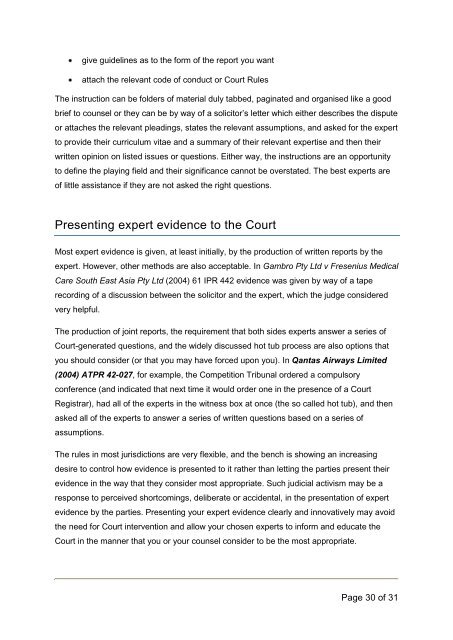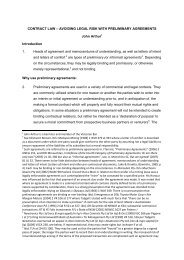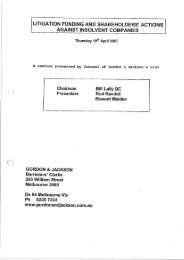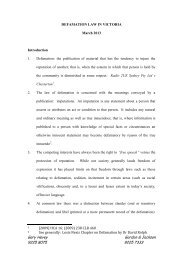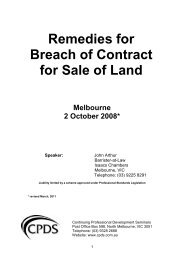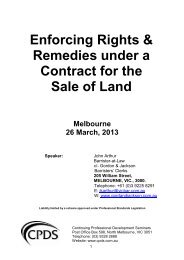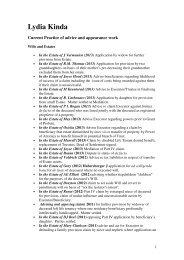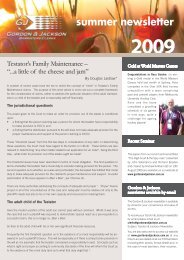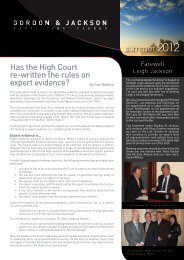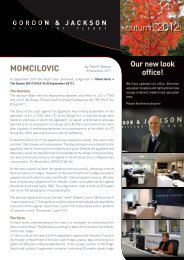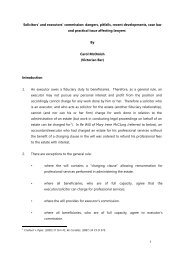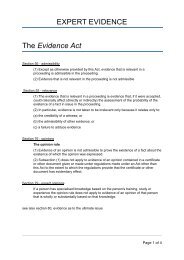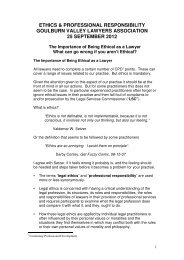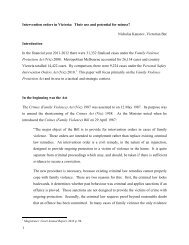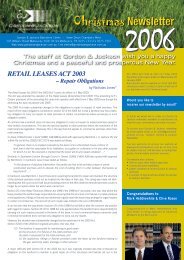here - Gordon & Jackson
here - Gordon & Jackson
here - Gordon & Jackson
Create successful ePaper yourself
Turn your PDF publications into a flip-book with our unique Google optimized e-Paper software.
give guidelines as to the form of the report you want<br />
attach the relevant code of conduct or Court Rules<br />
The instruction can be folders of material duly tabbed, paginated and organised like a good<br />
brief to counsel or they can be by way of a solicitor’s letter which either describes the dispute<br />
or attaches the relevant pleadings, states the relevant assumptions, and asked for the expert<br />
to provide their curriculum vitae and a summary of their relevant expertise and then their<br />
written opinion on listed issues or questions. Either way, the instructions are an opportunity<br />
to define the playing field and their significance cannot be overstated. The best experts are<br />
of little assistance if they are not asked the right questions.<br />
Presenting expert evidence to the Court<br />
Most expert evidence is given, at least initially, by the production of written reports by the<br />
expert. However, other methods are also acceptable. In Gambro Pty Ltd v Fresenius Medical<br />
Care South East Asia Pty Ltd (2004) 61 IPR 442 evidence was given by way of a tape<br />
recording of a discussion between the solicitor and the expert, which the judge considered<br />
very helpful.<br />
The production of joint reports, the requirement that both sides experts answer a series of<br />
Court-generated questions, and the widely discussed hot tub process are also options that<br />
you should consider (or that you may have forced upon you). In Qantas Airways Limited<br />
(2004) ATPR 42-027, for example, the Competition Tribunal ordered a compulsory<br />
conference (and indicated that next time it would order one in the presence of a Court<br />
Registrar), had all of the experts in the witness box at once (the so called hot tub), and then<br />
asked all of the experts to answer a series of written questions based on a series of<br />
assumptions.<br />
The rules in most jurisdictions are very flexible, and the bench is showing an increasing<br />
desire to control how evidence is presented to it rather than letting the parties present their<br />
evidence in the way that they consider most appropriate. Such judicial activism may be a<br />
response to perceived shortcomings, deliberate or accidental, in the presentation of expert<br />
evidence by the parties. Presenting your expert evidence clearly and innovatively may avoid<br />
the need for Court intervention and allow your chosen experts to inform and educate the<br />
Court in the manner that you or your counsel consider to be the most appropriate.<br />
Page 30 of 31


